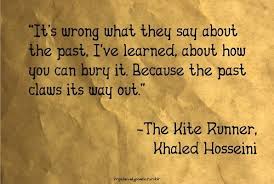I just read my first Science Fiction short story and it was, interesting. I think my biggest problem with short stories in general is that a lot of the time there's no resolution or closure. Or, in the case of this story, the resolution was completely ridiculous and did not leave me feeling like I had any answered questions.
First, I'm going to write some random thoughts I have about this short story:
1. What just happened? I feel like even after reading all of the story I still have no idea what is happening. Maybe that was J.G. Ballard goal, and if so he succeeded greatly. But really! I just want someone to lay out in clear terms what happened with NASA and the 'Space Age.' There's so much alluding to it, without any clear, cut answers.
2. Now that I think about it, the way the story is written is very skillful. There's so much allusion to what's happened and what is still happening to Mallory and his wife, Anne, but it's never once stated openly. I think writing like that takes a lot of skill. So props to the writer on that one.
3. I recently watched the movie The Martian, so space and astronauts and NASA just completely fascinate me. Could there possibly be some disease that will affect people who have been in space? Or would we know by now? Besides getting stuck in space forever, what's the worst that could happen in space?
4. Is J. G. Ballard trying to make an overall point or is there an overall theme to the writing? Or is it really meant to just fascinate and confound us? Because if it's the latter, spot on. But if there was meant to be some other meaning (most likely to be careful with going in space...? Maybe...) I didn't quite catch it.
5. Now that I'm thinking about overall meanings and themes for the short story, one idea keeps popping into my head...time. The disease which affects the characters seems to leave them in a time-less trance, where time stops. And one characters idea of how to get ride of the disease is to "get out of time." So something along the lines of transcending time, or getting a way around it? After all, I don't think any of us really ever feel like we have enough time to do everything we want to do.
Now that I have some of my thoughts written down, I'm going do some research on this story and see what I find:
So basically, J.G. Ballard is very well-known for his Science Fiction writing, both short stories and novels, he has written them both. Memories of the Space Age is actually a collection of short stories, all being very similar to each other. I would actually really enjoy reading these other short stories. They might give me a greater sense of closure than I had with this one story.
This is the website I found and got most of my information from, it's extremely helpful:
http://www.ballardian.com/ballard-and-the-vicissitudes-of-time
Well now I guess I'll go on to some other short stories and see what I can learn about them.


